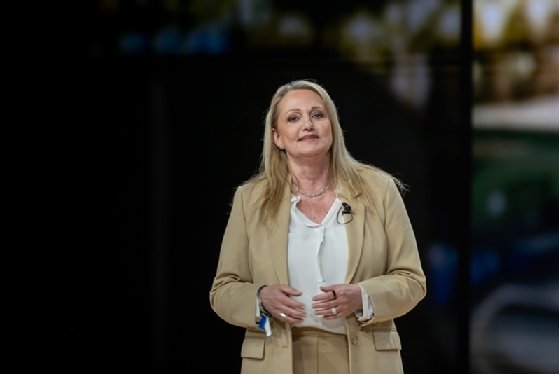Chemical industry giant BASF is moving its SAP IT estate to the supplier’s S/4Hana enterprise resource planning (ERP) system as part of a business modernisation strategy, it was announced at the SAP Sapphire user and partner conference in Madrid.
Petra Scheithe, senior vice-president of digitalization of services and ERP platforms at BASF Business Services, outlined the latest development in the company’s long-standing relationship with SAP.
BASF, which employs around 112,000 people, has been an SAP customer for 40 years. Its headquarters in Ludwigshafen are a half-hour drive from SAP’s in Walldorf.
According to a joint SAP/BASF statement, the chemical firm “adopted a hybrid system landscape to integrate SAP S/4Hana Cloud into BASF’s vast system and reduce the complexity of on-premise management. With a clean core strategy in place, any new customisations and functional extensions will be cloud-ready, allowing simplified system maintenance and operations in the long run.”
BASF also intends to use SAP’s artificial intelligence (AI) and sustainability software.
The first of its new systems on S/4Hana, in its coatings business, is already live.
BASF has four “core businesses”, in chemicals, materials, industrial solutions, and nutrition and care, and four standalone business units in agriculture and surface technologies, catalysts and metals, battery materials, and coatings.

BASF is also using SAP’s Joule copilot for initial use cases in SAP’s SuccessFactors HR system, and is looking at other cases for core business processes.
“We signed a new strategic partnership with SAP in December 2024,” said Scheithe, in an interview at Sapphire. “This includes Rise [with SAP], which we did not have before.”
Rise is a so-called business transformation as a service programme that is fundamentally about cloud migration, and getting customers, new and existing, onto a cloud-delivered version of its S/4Hana ERP system based on its in-memory database, Hana.
BASF’s existing SAP estate is one single global instance. “That has brought some challenges with it because over the last decade, we have really grown that system to a point where we said ‘this is difficult to manage’,” said Scheithe.
“We have a very broad product portfolio, from our agricultural business, our coatings business, catalysts, battery materials, and copper and metals,” she said. “Combining all of those requirements in one SAP system led to the point that we have more than 300,000 custom objects in the system, so it’s huge and monolithic. The transition to S/4Hana is a chance to clear that up.”
The idea is to back up the BASF strategy, called Winning Ways, with a modernised ERP system. The overall corporate strategy has the goal of BASF being “the preferred chemical company to enable our customers’ green transformation”.
It includes a €10bn investment in what the company calls a Verbund site in Zhanjiang in China. At these sites, production plants, energy and material flows, logistics, and site infrastructure are all integrated, according to the company. There are currently six worldwide.
In relation to the SAP environment, Scheithe said they decided to split the one instance into several business-related ones. The new company strategy, minted in 2024, means there is a pillar dedicated to “differentiated steering with different market requirements”, she added.
BASF started to build an S/4Hana instance in 2022 for the coatings business, with “a greenfield approach using clean core strategy”. This went live in March of this year, “on time and on budget, which I am super proud of”, said Scheithe. The firm is now implementing S/4 for the battery materials division and piloting for the agricultural business. “Clean core” in an SAP context means keeping the core system as standard as possible, with minimal custom modifications.
They also opted for SAP’s Rise programme so that their systems are as close as possible to standard SAP and to leverage the IT supplier’s innovations in AI.
Scheithe said she’s very interested to explore the use of the technology from SAP’s 2024 acquisition, WalkMe. This is a digital adoption platform technology that is increasingly associated with the use of SAP’s GenAI assistant, Joule.
WalkMe sits on top of an organisation’s IT applications layer and determines where users might experience difficulties such as getting stuck when performing a process or task. WalkMe then provides guidance and automated processes that help the user complete the task. BASF is not using it as yet.
It’s using Joule for HR tasks, in SuccessFactors, and Sheithe is especially interested in its use for developers. “We are not so naïve as to believe now that with implementing S/4 we will cover all our business requirements that we had in the past,” she said. “We have more than 300,000 custom objects in our system, and those were not done just because developers like to develop, but for business requirements. If we can’t get rid of those, we don’t want them in our core system, so it will be helpful if we have tools on hand that make our developers more efficient. This why I’m so excited about Joule for developers.”
Thomas Saueressig, a member of the executive board of SAP for customer services and delivery, said: “We are proud to partner with BASF on this transformative journey.
“By choosing SAP S/4Hana Cloud, BASF is laying a strong foundation for future growth and innovation,” he said. “The ability to leverage a clean core and standardised processes will provide BASF with the agility and resilience needed to thrive in today’s dynamic business environment.”
#Sapphire #BASF #evolves #business #move #SAP #S4Hana